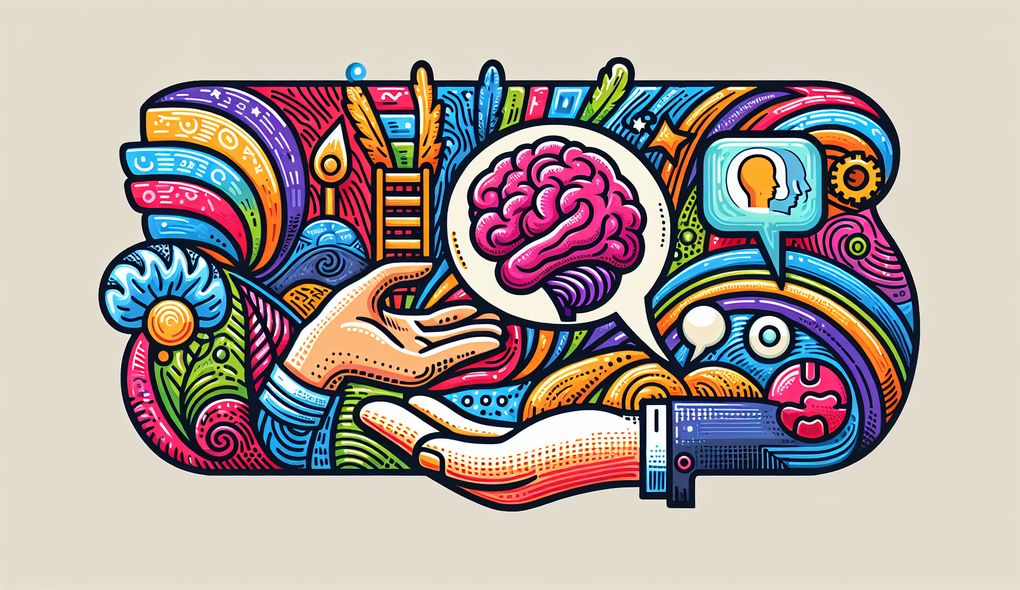What strategies do you use to help clients develop coping mechanisms and emotional resilience?
INTERMEDIATE LEVEL

Sample answer to the question:
To help clients develop coping mechanisms and emotional resilience, I use a variety of strategies. Firstly, I focus on building a strong therapeutic relationship with each client, as trust is crucial in this process. I create a safe and non-judgmental space where clients feel comfortable expressing their emotions. Secondly, I teach clients practical coping skills such as deep breathing exercises, mindfulness techniques, and stress management strategies. I also encourage them to engage in activities they enjoy and find therapeutic, such as art or exercise. Moreover, I incorporate cognitive-behavioral therapy techniques to help clients reframe negative thoughts and develop more positive and adaptive thinking patterns. Finally, I emphasize the importance of self-care and encourage clients to establish healthy routines involving sleep, nutrition, and exercise.
Here is a more solid answer:
To effectively help clients develop coping mechanisms and emotional resilience, I employ several key strategies. Firstly, I prioritize building a strong therapeutic relationship based on trust, empathy, and respect. This allows clients to feel comfortable opening up and discussing their emotions. Secondly, I utilize evidence-based clinical techniques such as cognitive-behavioral therapy to help clients identify and challenge negative thoughts and beliefs that contribute to their distress. I also incorporate mindfulness-based interventions to help clients cultivate greater self-awareness and emotional regulation. Additionally, I employ solution-focused therapy approaches to help clients set realistic goals and develop practical coping skills. Finally, I emphasize the importance of self-care and work with clients to establish healthy lifestyle habits that support their emotional well-being.
Why is this a more solid answer?
The solid answer provides more specific details and examples of strategies used, such as cognitive-behavioral therapy and mindfulness-based interventions. It also highlights the importance of solution-focused therapy and self-care. However, it could still be further improved by including specific examples of past experiences or projects that demonstrate the successful application of these strategies.
An example of a exceptional answer:
To support clients in developing coping mechanisms and emotional resilience, I employ a holistic approach that addresses their unique needs and goals. Firstly, I conduct thorough assessments to gain a comprehensive understanding of their mental health concerns. This allows me to tailor treatment plans specifically to their needs. I skillfully utilize evidence-based therapeutic modalities such as cognitive-behavioral therapy, dialectical behavior therapy, and psychodynamic approaches, adapting my approach to suit each client's preferences and presenting issues. Additionally, I recognize the significance of cultural factors and ensure that interventions are culturally sensitive and inclusive. I also collaborate with clients to develop personalized coping strategies that align with their strengths and values. Lastly, I provide ongoing support and guidance, monitoring their progress and making adjustments as needed. Through a compassionate and strengths-based approach, I empower clients to overcome challenges and build emotional resilience that extends beyond therapy sessions.
Why is this an exceptional answer?
The exceptional answer showcases a comprehensive and well-rounded approach to helping clients develop coping mechanisms and emotional resilience. It demonstrates a wide range of therapeutic modalities, cultural sensitivity, collaboration with clients, and ongoing support. The answer also emphasizes the importance of empowering clients and promoting long-term resilience.
How to prepare for this question:
- Familiarize yourself with different therapeutic modalities and their applications in promoting coping mechanisms and emotional resilience.
- Reflect on past experiences where you successfully helped clients develop coping skills and emotional resilience. Be prepared to discuss specific strategies used and their outcomes.
- Stay up-to-date with current research and best practices in the field of mental health counseling. This will demonstrate your commitment to ongoing learning and professional development.
- Consider how you can adapt your strategies to meet the diverse needs of clients from different cultural backgrounds. Cultural competence is essential in providing effective therapeutic support.
- Practice active listening and empathy during mock counseling sessions. These skills are crucial in building rapport and establishing a safe and trusting therapeutic environment.
What are interviewers evaluating with this question?
- Interpersonal skills
- Clinical skills
- Empathy and understanding
- Ability to develop rapport
- Organizational abilities
- Time management skills

